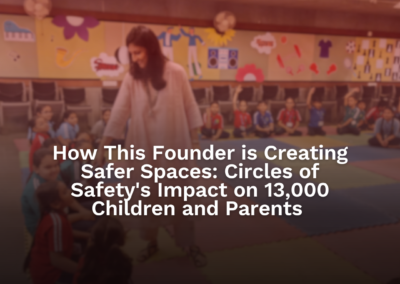Empowering Women in Politics
“Our goal is to of having women in our Parliament and our decision making, we have chosen a
pathway of political professional cadre to be built in the first place that can help women climb
up the ladder.”
We had the opportunity to interview Kanksshi Agarwal, the founder of the Netri foundation, which
is India’s first political incubator aggregator for women in the political ecosystem. What’s interesting
is that they intend to provide a platform, through a new industry for a political professional cadre,
which is women. It would act as a catalyst in their becoming more aware, informed, and empowered
individuals.
As Meghan Markle very rightly said, “Women don’t need to find a voice, they have a voice, they
need to feel empowered to use it, and people need to be encouraged to listen.”
When it comes to the aspect of the process of women climbing up the ladder, politics has always been
a field that is not only male-dominant but in their words “cordoned off the field for women” and even
if they do make it, it’s difficult to set their mark. The Netri foundation works on 4 pillars, and 2 things
that require a political career, are social capital and financial capital.
To build social capital, you need a network and the opportunities that come from it, and some
practical experience, some on-field experience. Since, a lot of women, might not know how to work in
these situations and feel stuck, Netri comes into place. To fill this gap, Netri offers different types of
programs open to very large groups of women and lasting 4-5 weeks. They not only provide them
with a political education but also theoretical recognition of basics and practical aspects, with the help
of their faculty members who are practitioners themselves, now retired from politics but still veterans
with deep insights. awareness of technical fundamentals and practical aspects.
In her opinion, this affects not only departments dealing with public policy, but also psephologists, if
they tend to see researchers who have close ties and insights into political economy and data.
Connections also play an important role. As a tech-enabled company, the foundation also pitches ideas
and strives to keep up with technological innovations within a year of proposing NSRCEL, including
creating a LinkedIn profile for women.
When asked “How do you tie in with which stage of our political journey should a woman come to
you in just trying to understand for the person?” They mentioned how the existing program has been
divided into three tiers. After two years of this foundation, the program is broken down, through their
insights. So one can be at the stage of entering politics, or one’s at the stage where they wish to
contest, or after 10 years of political activism, They’re at a stage where they want to compete or work
in a position where it’s taken a little bit more seriously. Those are the two categories they’re looking at
right now.
Moreover, to shed some light on what inspired this project, for them, Inspiration comes through a
personal story and systematic experience. Talking about the frequent experience, being closely
involved in overseeing the elections, working for political parties, and being a legislative advisor to a
member of parliament provided the exposure that was required. Which brought to their realization,
being a 25-year-old, “ Why can`t I contest? Why can’t I be in the system? And what does it require?
So people said, you need a godfather in politics, you need money in politics, but at the same time to
even figure this out, I had to be in the system.”
While seeing politicians around them, and going through the systematic process themselves, did they
witness the harsh ground reality, of the lack of women folk on campaign sites, how women are used as
vote banks, and those working door-to-door, their political intelligence is also underutilized. Not only
are they underrepresented, but their vastly different political views, opinions, and experiences are
unrepresented and unrealized.
Since, women do not belong to a specific, single category, they also exist within the caste they exist in
within families, religion, and even their sexuality. So the experiences are very different. Hence, a
single woman making the cut won’t be a solution, it does not involve Intersectionality. It’s important
to question, whether are we truly representative democracy. This is where the agenda of
acknowledging the privilege one has, and using it and their connections and network to build
something out for the other diverse strata of women are.
Move on to the part about what one experiences in their life and how it affects their perspective on
how one sees and reacts to society. Considering the vast role “identity” plays and how Kanksshi’s
identity has been overrepresented and overrepresented in Indian politics. But at the same time, as any
woman, there’s an irony and a contrasting reality that comes into play, whether she’s privileged as a
woman or not, she’s going to have a hard time succeeding. Their role, and their value, are therefore
questioned by society. This further led to the founder’s commitment to change the system to make it a
more welcoming space for women.
Keeping the goal for the upcoming next 2 years, the foundation is committed to finding a voice of its
own, being driven by representation, driven to change the hate-driven, patriarchal system of politics
which at the moment, is a toxic environment for women to even step in, To be the part of the political
dynamics, focusing on enabling more women, to occupy spaces that truly run politics such as Election
Management.
To create change, we need to be the change. Not only is it essential, to be aware that politics affects
everyone, each of us and it’s important to deal with understanding the fundamental of politics, We
need to break away from the slumber of denial, face the reality, deal with it, Politics need new ideas, it
needs innovations and a change of pace.
NSRCEL’s startup ecosystem helps entrepreneurs access resources that help them band together and
innovate the future of India. Netri, during proposing to NSRCEL, being a tech-enabled venture, tried
to stay abreast of technological innovations while focusing on politics, and within a year of making
her presentation to NSRCEL, was able to build a women’s political platform on LinkedIn.
During the pre-incubation period of 100 days, giving them the clarity and validation of the work that
they were doing, from being selected among 27 other ventures, and being in the top 18 and top 9.
At the same time, on being incubated last year, in 2021, they walked a tightrope of being driven by
their vision while maintaining organizational sustainability. Developing their model, understanding
the strategy, and understanding their customers are just a few steps in their journey with NSRCEL so
far.
As Benjamin Franklin said, “Justice will not be served, until those who are unaffected, are as
outraged as those who are.”




0 Comments